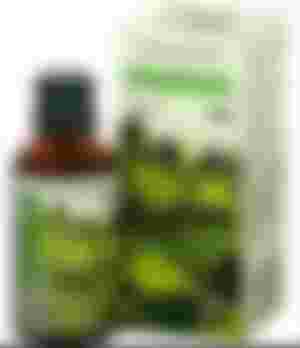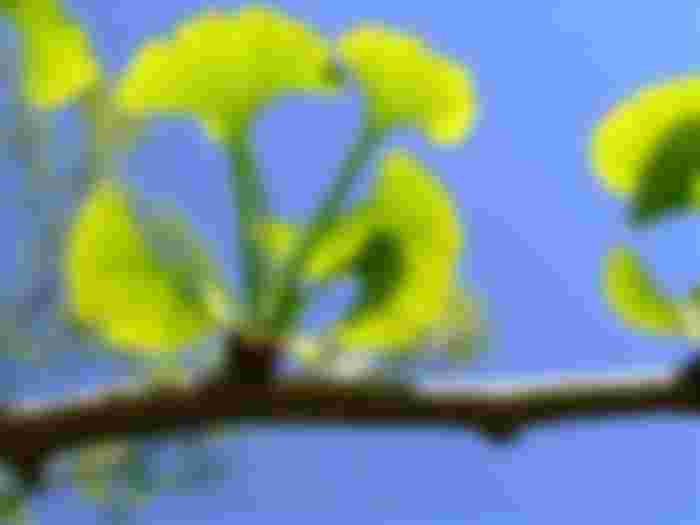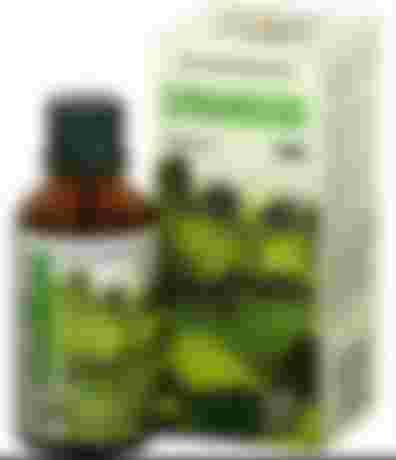Nature is full of medicinal plants, we just have to find them
In addition to training our brain twists, there are plants that can help us, one of them is Ginkgo Biloba.

Ginkgo belongs to the group of deciduous trees. Sometimes it can reach a height of up to 50 meters and age up to an incredible 1500 years and even more. Based on fossil remains, the great ginkgo biloba is thought to be 300 million years old, making it one of the oldest living creatures on the planet. It was the most widespread in Europe until the last ice age about 12 thousand years ago, as evidenced by the numerous remains in coal basins across this continent. Indigenous European ginkgo no longer exists, and those that grow head-on today are generated from its homeland of China, where it grows wild in just two more places.

Ginkgo or mandarin tree, grandfather's tree and interior, silver bag, white fruit (Gingko biloba) is a deciduous tree and the only representative of the work of the same name This tree used to be widespread, in the Jurassic about one hundred and seventy million years ago. At that time, species of this genus inhabited almost the entire mainland. Most species disappeared just before the Tertiary. Today, it is found as a wild species only in the mountains of southeast China (endemic). It is very successfully grown in parks and botanical gardens. It has been grown for centuries in the courtyards of Chinese and Japanese temples as a sacred tree. Ginkgo is a relict species, a living fossil, which has survived since the Mesozoic (according to fossil remains).

Medicinal ingredients
The leaves and seeds of this plant are used. They contain a large percentage of flavonoids, glycosides, ginkgolides (five species found only in this plant), bilobalides, essential oils, tannic acid, etc. The first ginkgo leaf extract was produced only in 1965. (for that, Dr. Corey received the Nobel Prize), although its healing properties are known and have been traditionally used since ancient times in the medicine of the Far East. In addition, ginkgo has become a favorite park species because it has been found to purify the air in cities and tolerate polluted air well.

Operation
Ginkgo improves cerebral microcirculation, and thus improves the brain's oxygen supply. It has an antioxidant effect, reducing fat oxidation and nerve cell damage due to oxidative stress. The antiplatelet effect is manifested by a reduction in the possibility of blood clots, but in combination with other antioxidants it can lead to bleeding. According to some authors, ginkgo extract also has a neuroprotective effect. Ginkgolides stimulate the defense mechanisms, thus improving asthmatic and allergic conditions, bacterial infections, as well as conditions after a stroke and heart attack.

Application
Ginkgo is also used to improve memory and to compare circulation. The results of scientific research on the use of ginkgo in dimensions and Alzheimer's disease are contradictory, because according to some arrivals to enrichment, and according to other names in memory. Ginkgo prevents the continuation of blood clots and the development of heart attacks and strokes. The use of ginkgo in young people (students) has an effect 2 to 6 hours after ingestion, and the result is dose-dependent, ie. higher doses of ginkgo extract showed a significant improvement in cognitive abilities and attention. Ginkgo is also used for visual impairment: glaucoma, macular degeneration, peripheral circulatory disorders (cold limbs, intermittent claudication, Raynaud's syndrome). It is sometimes recommended for tingling in the hands, dizziness, fainting, tinnitus ...German Commission E cites it as indications for the use of ginkgo leaf extract: cognitive disorders (forgetfulness, learning) and peripheral circulation disorders. The World Health Organization has recognized ginkgo as a remedy against dementia and Alzheimer's disease. It is recommended to use 40mg of ginkgo leaf extract three times a day, but 120mg is also used once a day. In some cases, higher doses are used in intensive learning (240 mg-360 mg).







Ginkgo is a very healthy plant